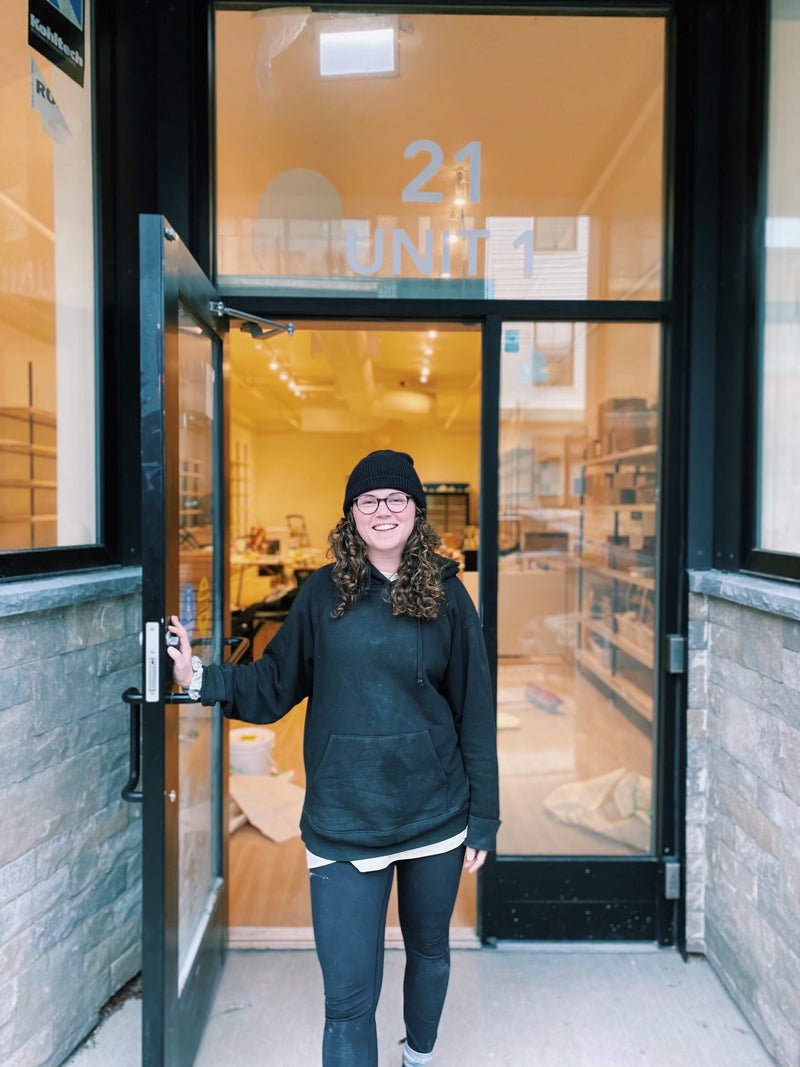When you walk into The Tare Shop, you’ll notice one thing that sets it apart from other stores: no plastic bags or containers in sight.

When Kate Pepler opened her flagship store in Halifax’s north end three years ago, it was hailed as Nova Scotia’s first completely package-free bulk store.
“After announcing the business in Jan. 2018, I was flooded with messages from folks from all over Nova Scotia saying how excited they were to finally be able to shop at a package-free place,” Pepler tells Global News.
“You bring in your own containers and we encourage folks to reuse what they have.”
It’s a business model that has seen so much success, the 27-year-old entrepreneur just opened up her second location on Portland St. in downtown Dartmouth.
“It’s really encouraging to see. It definitely feels like this way of shopping is catching on and is growing,” says Pepler.
She says she’s seen more customers — particularly new customers — during the coronavirus pandemic: an increase of about 30 to 40 per cent each month.

It’s a surge in new customers that doesn’t come as a surprise to Sylvain Charlebois, a Dalhousie University professor who studies Canadian food trends and habits.
“We do waste a lot of food and our lifestyles have changed since the start of COVID,” he says.

“There are reports that suggest that we are wasting more than ever, especially when it comes to packaging, so I’m not surprised that more and more people are conscious about this issue and they’re willing to do something about it.”

Get weekly health news
And just how much work Canadians are willing to put in to their shopping trips to help the environment could depend on where they live, according to Charlebois.
“We conducted a study last year about food waste awareness or packaging waste awareness, and awareness levels on both coasts in Canada were higher than say, in the prairies, Ontario or Quebec. That’s probably because we can actually see the problem, they see things on the beach, they see things in parks. So I’m not surprised to see this movement actually getting some traction in our region,” he says.
But, he says, while it may be a solution for some, he doesn’t believe a package-free shopping model will solve Canada’s food waste issue, as plastics have become a “safety net” for consumers.
“I do think that there is a good market for shops like that, but not for the masses. Everything that you have to do to visit these shops require more time. It’s a lot of work. The key is to save the planet, with convenient solutions for consumers,” Charlebois says.
He says during the pandemic, people simply aren’t focused on sustainability issues as public health takes centre stage. That said, Charlebois expects the focus to shift back to environmental issues soon.
“We need to change behaviours as quickly as possible because right now, parks and oceans don’t care about the pandemic. The problem is still there,” Charlebois says.
That is what motivates Pepler, who says she is happy to cater to those who are willing to put in the work today.
“It definitely can get very frustrating walking into a grocery store and not being given an option for a lower-waste or a plastic-free option. We can make these small changes in our lives, but we have to go one step further and push those big businesses and manufacturers and producers to take responsibility for their packaging and offer more sustainable solutions that are also economical,” she says.
“It’s been really great to be able to still provide folks with a safe way to shop a lower waste lifestyle, because, we are in a time of crisis, not just COVID-19, but the climate change and the plastic problem. We need to act, and we need to act now.”











Comments
Want to discuss? Please read our Commenting Policy first.